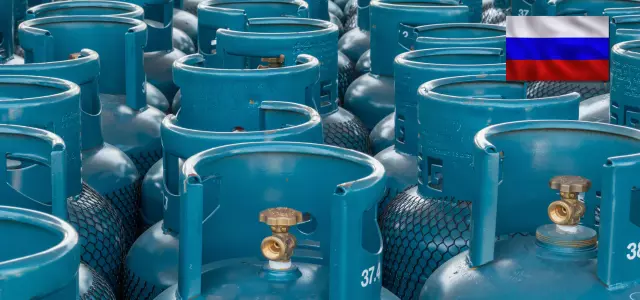
This article originally ran on Forbes.com on October 7, 2024. All rights reserved.
Daniel B. Markind is a Forbes.com energy column contributor. The views expressed in this article are not to be associated with the views of Flaster Greenberg PC.
As the Ukraine war progresses toward its third winter, Russian President Vladimir Putin finds himself besieged on numerous fronts. During the first 30 months of this conflict, Putin used his vast energy resources to hedge against the collapse of the Russian economy. Now, however, the oil and natural gas bounty may not be enough to keep Russia’s economy afloat, as some captains of industry decide to distance themselves from the regime.
One of the secrets of Putin’s longevity in the Byzantine world of Russian politics is his alliance with a handful of wealthy men known as oligarchs. While some of these men were allies of former Russian President Boris Yeltsin, others rose with Putin since he succeeded Yeltsin in 2000. The first-generation oligarchs used their connections to purchase formerly state-owned Soviet assets in the 1990s, such as in the energy industry, for prices far below market. The “Putin oligarchs” used their ties to secure massive state contracts since the 2000s. “Yeltsin’s oligarchs” gained substantial control over Russia’s natural resources. All became potential targets of Mr. Putin if they happened to cross or displease him.
Despite the potential threat posed by Yeltsin-era oligarchs to his power, Putin often chose not to confront them but rather to co-opt, telling them they could keep their money and assets so long as they stayed out of politics. This gave them a stake in his regime, with a substantial penalty likely for those who chose to oppose him. Putin showed how heavy-handed he could be in the case of the opposition oil magnate Mikhail Khodorkovsky, who he imprisoned for nine years beginning in 2003. (Source).
For twenty years few did. However, the script changed with the massive Ukrainian invasion in February 2022. Western governments slapped sanctions not only on Russian state assets but also on the possessions of many of the oligarchs, counting on whatever influence they might have over Putin to induce him to stop the fighting. As a result, men who had become accustomed to vacationing on the French Riviera (Source) and hosting lavish parties on their massive private yachts could no longer do so. Not only were they barred from traveling to many Western countries, but their yachts and other possessions were often seized from under them but cannot be sold unless a crime was committed. As the result, the seized assets remain in a legal limbo. (Source).
The dam may now begin to break. The last few months have seen more Putin allies, such as Vladimir Lisin (Source) and Albert Avdolyan (Source), break with the Russian President, for the first time. Recently, Igor Rotenberg, who for some years now was quietly selling his stake in Russian companies, has rid himself of all of his holdings in the country.
This is significant because Igor Rotenberg, currently sanctioned by the EU (Source) had once been one of the prime beneficiaries of Gazprom Bureniye (Gazprom Drilling), a company that received contracts from the state gas monopoly, Gazprom. In December 2023, Rotenberg sold his shares of RTITS, more formally known as RT- Invest Transport Systems, his last major asset in Russia. Rotenberg, whose estimated net worth was once believed to reach $1.5B, (Source), was sanctioned by the UK in 2022 following Russia’s initial invasion of Ukraine. (Source).
Igor is the son of Arkady Rotenberg, the Putin judo buddy from St. Petersburg, a sanctioned billionaire who is worth $4 billion and is on Forbes’ billionaire list as #781. (Source) Despite his father’s connections though, the young Rotenberg has distanced himself from politics in the country and from the regime.
All of this is happening as the West moves ever more aggressively to track and seize the assets of Russian oligarchs. On September 20, the United States Department of the Treasury’s Office of Foreign Asset Control designated seven oligarchs and 12 companies that they control as subject to having their assets frozen.
The sale of all of his assets by Igor Rotenberg and the recent anti-war comments made by Oleg Deripaska, (Source), may evidence a growing unease among the most powerful men in Russia who are outside of the security, military, or Vladimir’s Putin’s inner circle.
Nevertheless, while it is clear that despite the economic sanctions, Vladimir Putin intends for Russia to remain a major energy power on the world stage, he will have to do so without the support of some of the high-profile businessmen who have led the country’s energy industries for the last thirty years.

